ICMI Newsletter - June 2024
Editors:
Jean-Luc Dorier (ICMI Secretary-General)
Merrilyn Goos (ICMI Vice President)
Lena Koch (ICMI Administrative Manager)
Technical support:
Vanessa Chung, IMU Secretariat
Publishing dates:
March 15, June 15, September 15, December 15
1. Editorial – From the desk of Jill Adler, past ICMI President (2017-2020)
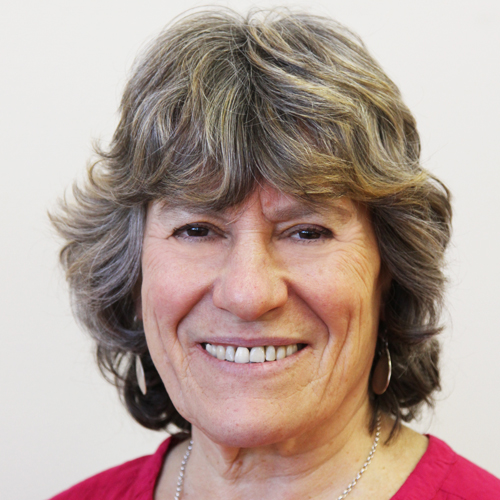 I write this editorial at the end of May 2024, and in my last months on the ICMI Executive Committee. Since January 2021 I have served in an ex-officio position as immediate Past President and so continuing my involvement in ICMI activities. The most enjoyable recent activity was the successful ICMI Study 26 Conference on Advances in Geometry Education in Reims, France at the end of April. And as I write this, ICMI Study 27 on Mathematics Education and the Socio-Ecological is on its way with its conference planned for January 2025. And just around the corner in a few weeks is our ICME-15 Congress in Sydney, Australia. Plans are afoot to ensure a welcoming and participative time for all with special activities for emerging researchers, for example, to meet with ICMI awardees, and plenary speakers, and others from different countries and contexts.
I write this editorial at the end of May 2024, and in my last months on the ICMI Executive Committee. Since January 2021 I have served in an ex-officio position as immediate Past President and so continuing my involvement in ICMI activities. The most enjoyable recent activity was the successful ICMI Study 26 Conference on Advances in Geometry Education in Reims, France at the end of April. And as I write this, ICMI Study 27 on Mathematics Education and the Socio-Ecological is on its way with its conference planned for January 2025. And just around the corner in a few weeks is our ICME-15 Congress in Sydney, Australia. Plans are afoot to ensure a welcoming and participative time for all with special activities for emerging researchers, for example, to meet with ICMI awardees, and plenary speakers, and others from different countries and contexts.
Elsewhere in this newsletter is a report on the ICMI Study 26 conference by the Study co-chairs. I nevertheless would like to focus this editorial on the experience of participating in an ICMI Study and its conference. Each time I participate in a study conference, I experience, once more, its uniqueness as a conference setting. I hope to capture here some of what is so special. ICMI Studies are complex endeavors. An International Program Committee (IPC) with two co-chairs and a small group of around ten people with expertise in the field – here the teaching and learning of geometry – are brought together to overview the field, and then invite the wider international community to send papers on their work to a conference that ultimately will lead to a volume published by Springer on the topic of the Study. The basis for the papers is a Discussion Document put together by the IPC that identifies and outlines critical themes to be addressed by the Study. Submitted papers are selected in line with the themes, and their author or authors (depending on the agreed size of the conference) are then invited to the conference.
While the papers from a substantial part of the work of the conference, these are not presented as in other conferences. Instead, participants are expected to have read the pre-conference proceedings, particularly those in their theme, prior to the start of the conference. In working groups aligned with the themes for the study, the papers are briefly presented and discussed. Over the four days of the conference, this is the major activity – a group of scholars from a range of countries work together, discussing each other’s work. On the basis of the submissions and discussions, the themed groups each construct outlines of what are to become papers towards a volume that will capture not only the contents of the conference discussions, but more broadly, advances that have been made in geometry education, questions that remain open and what thus also lies ahead.
Imagine for a moment, if you have not been to one of these conferences, what this journey might be like - progressing from submitting your own paper and so some localized research, to being part of an international group that produces a collective ‘report’? How do the differences – be these in location and so practices grounded in diverse realities, and/or in theoretical and methodological orientations – find non-reductive common ground? I have been aware, each time the conference gets underway and the groups start their work, at how dispersed they initially seem, and how far away the ultimate goal for a collective and inclusive study seems. In the first days, the conference co-chairs move from group to group, ensuring that engagement with papers is constructive, and more likely, worrying about all manner of things. For example: Are each of groups working well? Are the groups evenly distributed? And most of all, worrying how on earth this dispersion in the beginnings of the conference will find their way to come together.
And they do.
I marveled again at this and spent some time in Reims thinking about how it happens. On the first two days I also looked in across the groups, though my participation was most fully in the one where I had a co-authored paper. As I listened to reports, discussions and their continuations into teas and lunches, what became clear is this. If you put 80 - 100 serious scholars together in a well-organized and supportively led space over a period of days, and in a field they feel passionately about, interesting, productive and important discussions will ensue. By and large, a collective commitment emerges that moves the enterprise forward, leading to final sessions where the outline of the overall volume emerges. The intensity and interest are needed, as considerable work still lies ahead: the five groups of participants at the ICMI Study 26 conference, each led by members of the IPC, having found common ground are now working to flesh out what were outlines towards the various chapters planned for the study volume. This is hard work, the large responsibility for which is carried by the two co-chairs.
In the near future, our field will have a volume on Advances in Geometry, that, like others before it, will be of tremendous value to other scholars, and particularly new researchers entering this specific field.
It is testament to ICMI as an organization that the studies, conceived many years ago, continue. And there are two dimensions to this organization. First each new EC that takes the enterprise forward conceptualizing and launching new studies; and second, all the scholars who agree to contribute, for all this is done as part of their ongoing academic work.
A few years ago, together with Merrilyn Goos, we carried out a survey of the studies. The benefits to participants in a ICMI Study were expressed by many, with much attributed to the uniqueness of, and positive experiences from, the conference. There are also inevitable challenges, particularly in relation to inclusion from across the globe, and I have not dwelt on these here. I rather wished to dedicate this editorial to all participants of past ICMI studies, for their contributions and for the contributions that the volumes produced have made and continue to make to the development of mathematics education.
2. Publication ICMI Study 25
Publication of the volume of ICMI Study 25: “Teachers of Mathematics Working and Learning in Collaborative Groups” - Hilda Borko and Despina Potari (Eds.)
The volume of the 25th ICMI Study “Teachers of Mathematics Working and Learning in Collaborative Groups”, edited by Hilda Borko and Despina Potari has been published as the 21st volume of the New ICMI Studies Series at Springer.
It is accessible open access here. You can find all information about all ICMI Studies on the ICMI page dedicated to the studies.
3. ICMI Study 26 conference
Report of ICMI Study 26 conference “Advances in geometry education” – April 22-26, 2024 – Reims (France)
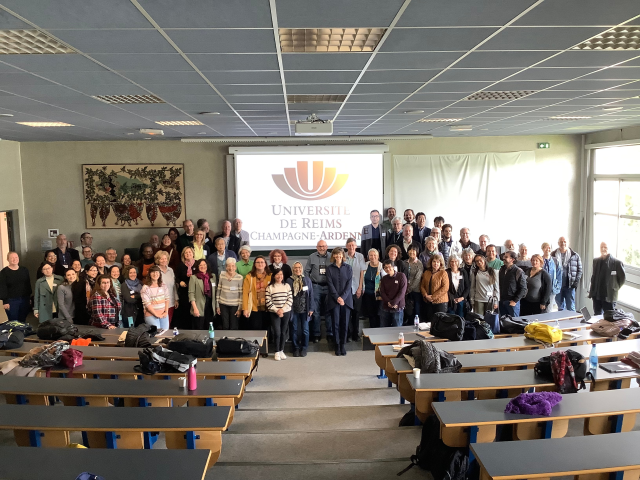
The activity of the Study is organized around four focused topics, aiming to provide complementary perspectives and approaches to the teaching and learning of geometry. Contributions to the topics were organized around sets of related sub-topics, each sub-topic focusing on a specific issue and stating a set of questions aiming to lead discussions, as defined in the Discussion Document. The four topics comprise:
- theoretical perspectives;
- curricular and methodological approaches;
- resources for teaching and learning geometry; and
- multidisciplinary perspectives.
The Discussion Document also served as a call for papers for the ICMI Study 26 Conference, hosted by the Université de Reims Champagne-Ardenne, France, on April 23-26, 2024. These topics and related sub-topics provided the basis for inviting papers. Each submission was reviewed by at least two IPC members, and authors of accepted papers were invited to participate in the Study Conference. Accepted papers were then revised (when necessary) by the authors, before being published in the conference proceedings (available on the ICMI page for ICMI Studies). The conference proceedings contain 56 papers (see Table 1), with contributions by 127 authors from 29 countries, across the five continents, including: Argentina, Australia, Brazil, Canada, Chile, China, Colombia, Costa Rica, Croatia, France, Germany, Greece, Hong Kong, India, Iran, Israel, Italy, Japan, Malawi, Mexico, New Zealand, Portugal, Serbia, South Africa, Spain, Sweden, Switzerland, United Kingdom, and United States.
| Topic | Number of Papers |
|---|---|
| Theoretical Perspectives | 12 |
| Curricular and Methodological Approaches | 17 |
| Resources for Teaching and Learning Geometry | 21 |
| Multidisciplinary Perspectives | 6 |
| Total | 56 |
The two plenary lectures were addressed by Nathalie Sinclair (Canada) and Patricio Herbst (United States). Nathalie presented results and reflections from her research experience on teaching and learning geometry in early grades with technology. In her lecture, Sinclair linked recent theorizing about the role of geometry in contemporary mathematics, considered alternative curriculum approaches that challenge both Western and Piagetian progressions, and discussed pedagogical approaches that center on making and acting.
Patricio presented a lecture on teaching knowledge in geometry for the teaching of proof in the United States. Herbst described a program of descriptive research that seeks to understand what we call the practical rationality of mathematics teaching and how this rationality can make room for instructional resources and practices that seek to improve instruction.
The plenary panel examining the framing of geometric representations and practices in culturally-diverse settings was coordinated by Thomas Lowrie (Australia) and included Lisnet Mwadzaangati (Malawi), Natalia Sgreccia (Argentina), Zara Gooya (Iran), and Milton Rosa (Brazil). The panel considered new directions for geometry education research framed within political, cultural, and contextual dimensions of practice.
To ensure that teachers’ voices were well-represented at the Study Conference, five French practitioners actively involved in collaborative geometry projects participated in the plenary panel focusing on different perspectives of their practices of teaching geometry. The panel was coordinated by Fabien Emprin and included Isabelle Audra, Mélanie Binet, Marie-Paul Foy, Lucie Jacotin, and Aurélie Marche. Each teacher provided an overview of their school context and their practices that informed students learning, while posing questions to the group of researchers.
The Conference was organized around five working groups (WG) focused on specific parts of the topics and sub-topics defined in the Discussion Document. The WGs were scheduled to meet for eight 90-minute sessions. The first five sessions were mainly devoted to presenting and discussing the papers, with a range between 10 and 14 papers in each WG. In the last three sessions, the participants of each WG engaged in discussions focused on identifying the relevant issues raised in the previous presentations and making proposals to the IPC for the design of a part of a book that will be part of the ICMI Study Series; this volume will be the final product of the Study.
The IPC is now working on the design of the Study Volume. The chapters will present a panoramic view of the contents of the Conference, showing a diversity of issues and questions related to the teaching and learning of geometry at the different educational levels and approaches to deal with them.
4. Latest news about ICMI Study 27 “Mathematics education and the socio-ecological”.
Kate le Roux and Alf Coles (IPC Co-Chairs)
We are inviting final submissions - until 24 June, 2024 UTC 11.59pm - from those working on issues in mathematics education that span social (including political) and ecological (environmental) problems, and related ethical concerns. The Study Call is conceptualized around four related themes (each with subthemes): (A) Aims of mathematics education; (B) Scales of mathematics education; (C) Resources of and for mathematics education; and (D) Mathematics education futures. Full details are available in the May 2024 Discussion Document (with Addendum) available on the Study website. A Discussion Group at ICME-15 will take place to elaborate on these themes – all are welcome.
Colleagues are encouraged to submit papers for consideration, even if they may not be able, as yet, to commit to attending the Study Conference, e.g., for financial reasons. The IPC is committed to creating a range of opportunities for contribution and participation, to give visibility to the current work on the topic. We welcome empirical, theoretical and methodological papers (including work in progress contributions) of up to 8 pages that offer diverse voices, experiences, and knowledges, produced in collaborations involving stakeholders from varied contexts and sites of education. This includes papers first written in a language of the authors’ choice, submitted together with a version authors have subsequently translated into English, using a reliable online tool.
The ICMI Study 27 Conference taking place from January 22 to January 25, 2025, in Quezon City, Philippines is the key forum for analyzing the accepted submissions, and moving the field forward. All accepted contributions will have visibility in the Study Conference Proceedings (published online, with an ISBN). The IPC is delighted to be hosting the Conference in a developing, lower-middle income country, thus harnessing local and regional knowledges. Information about the venue, registration, costs, travel, and accommodation is available on the ICMI Study 27 website.
Summary of upcoming dates:
- Deadline for paper submissions (extended): June 24, 2024
- Invitations to participate in the Conference mailed: between July 30 and August 15, 2024
- Registration: opens July 30, 2024; closes November 1, 2024
- Proceedings published online: December 31, 2024
- Conference opening: January 22, 2025
Conference discussions will provide the foundations for invited contributions to an edited volume published open access by Springer as part of the New ICMI Studies Series.
5. Special session on ICMI Studies at ICME-15
Friday July 12 (09:00-10:30)
Session Chair: Merrilyn Goos, ICMI Vice-President, mgoos@usc.edu.au
Session Information
An ICMI Study is an investigation of a topic of contemporary interest in mathematics education. Each Study is launched by a Discussion Document that surveys the particular topic of interest, identifies themes for investigation, and invites submission of short papers to a Study Conference. The Study Conference is organized around working groups that engage in lively discussion of the topic. The outcome of the Study Conference is the Study Volume – an edited book that provides a critical review and synthesis of current and future trends.
In this session, Co-chairs of the two current ICMI Studies will report on their Studies’ progress. In addition, Co-chairs of the two ICMI Studies completed since ICME-14 will launch their respective Study Volumes.
A. Agenda
09:00-09:10 Introduction and welcome (10 min)
Presenter: Frederick Leung, ICMI President, icmi.president@mathunion.org
Brief introduction to what is an ICMI Study in general. Mention of Springer publishing open access Study Volumes. Introduction to the four Studies completed (24, 25) or launched (26, 27) since ICME-14.
09:10-09:35 ICMI Study 27 Mathematics education and the socio-ecological (25 min)
Presenters: Study 27 Co-chairs Kate Le Roux (kate.leroux@uct.ac.za) and Alf Coles (Alf.Coles@bristol.ac.uk)
09:10-09:25 Overview of key themes from the Discussion Document (paper submission closed on June 24, 2024) Notice of ICME-15 Discussion Group
09:25-09:35 Questions and discussion
09:35-10:15 ICMI Study 26 Advances in geometry education (40 min)
Presenters: Study 26 Co-chairs Angel Gutierrez (Angel.Gutierrez@uv.es) and Tom Lowrie (Thomas.Lowrie@canberra.edu.au)
09:35-10:05 Overview of key themes from Discussion Document Study Conference was held on April 22-26, 2024 Key messages from the Working Groups
10:05-10:15 Questions and discussion
10:15-10:30 Launch of two ICMI Study Volumes (15 min)
Study 25: Teachers working and learning in collaborative groups
Study 24: Mathematics curriculum reform around the world
Presenters:
Study 25 Co-chairs Despina Potari (dpotari@math.uoa.gr) and Hilda Borko (hildab@stanford.edu)
Study 24 Co-chairs Yoshi Shimizu (yshimizu@human.tsukuba.ac.jp) and Renuka Vithal (vithalukzn@gmail.com)
6. ICME-15 coming up
We are excited that the 15th International Congress on Mathematical Education will open in less than a month.
Here you can view the Detailed Congress Program: https://icme15.org/time-table/
Detailed Program as of June 2024 and subject to change
You can still register: https://icme15.org/registration/ and find out more!
7. Two ICMI Discussion Groups (DG) at ICME-15
During ICME-15, two timeslots on Wednesday July 10, 2024 – 16h-17h30 and Saturday July 13, 2024 – 11h-12h30 will be devoted to Discussion Groups (there will be 30 different DG running in parallel during the 2 sessions). Two of these DG are connected with central ICMI activities, i.e. ICMI AMOR and CANP, and are supported by EC members. We hope to see many of you.
Further news on ICMI AMOR: Jean-Luc Dorier, ICMI Secretary-General is very happy to let you know that the units devoted to the two first Felix Klein ICMI Awardees, Guy Brousseau and Ubiratan D’Ambrosio, in the ICMI awardees Multimedia Online Resources (AMOR) project are now complete.
Please visit: https://www.mathunion.org/icmi/awards/amor/guy-brousseau-unit and
https://www.mathunion.org/icmi/awards/amor/ubiratan-dambrosio-unit
Many thanks to Annie Bessot and Claire Margolinas for Brousseau’s Unit and to Milton Rosa and Daniel Clark Orey for D’Ambrosio’s Unit.
7.1 ICMI Awardees multimedia online resources (AMOR)
Making the main trends in math education more visible- Discussion Group during ICME-15
Wednesday July 10, 2024 – 16h-17h30 and Saturday July 13, 2024 – 11h-12h30, Sydney Australia
Jean-Luc Dorier – ICMI Secretray-General - University of Geneva (Switzerland)
Michèle Artigue – University Paris Cité (France)
Marianna Bosch – University of Barcelona (Spain)
Marta Civil – University of Arizona (USA)
Núria Planas– Autonomous University of Barcelona (Spain)
Milton Rosa – Universidade Federal de Ouro Preto (Brazil)
It is important for the mathematics education community to build online resources reflecting highly significant and influential research in mathematics education at an international level. This could serve as a reference not only for researchers, but also for educators, teachers, curriculum developers and policy makers and other agents in the field. In particular, such a project could serve as a basis for a PhD training program and induction into mathematics education research.
ICMI was formed more than a century ago. Yet, mathematics education research does not have an equally long history and is a rather young field of research, with its roots often embedded in local contexts, but also in international events like the International Congress on Mathematics Education that has been held since 1969. However, the field is now at a turn of its history when there is a need for a set of references with theories, methodologies, results and fields of investigation that the community can claim as the most important trends.
Of course, this begs the question as to how to select which are the most important trends to be represented, at least initially. Since 2003, ICMI has honored outstanding individuals with three awards: the Felix Klein, the Hans Freudenthal and the Emma Castelnuovo (established in 2013). Therefore, to build our resources ICMI has decided to focus on each ICMI Awardee, through what has been called the Awardees Multimedia Online Resources (AMOR) project.
Session 1
This first session is devoted to the origin and elaboration of the project, its value and strong points, and its challenges and possible improvements.
- Origin of the project (10 min) (Jean-Luc Dorier)
- Genesis of the project (15 min) (Michèle Artigue and Marianna Bosch)
- Presentation of different units of the project with a selection of short extracts of videos (Michèle Artigue for her unit, Jean-Luc Dorier for Brousseau’s unit, Marianna Bosch for Yves Chevallard’s unit, Milton Rosa for Ubiratan D’Ambrosio’s unit, Jean-Luc Dorier for Celia Hoyles’ unit, Milton Rosa for Terezinha Nunes’ unit, Jean-Luc Dorier for Anna Sfard’s unit) (30 minutes).
Open discussion on the following issues (35 min):
- What are the pros and cons of the format of the project?
- What does it allow in terms of the initial objectives (creating a reference for our community)?
- What does it miss? How could it be improved?
- How could we have more units? How could the project team be reinforced?
- How could we reach more people? How could we advertise?
- Should the format of the project evolve? In what way?
Session 2
This second session will be devoted to presenting some uses of AMOR and a discussion on other possible uses and what needs to be done to increase and improve its impact. The session will start with some reports of people who have used the AMOR project during PhD programs or teachers’ training sessions and the way they used it. (45 min)
Open discussion on the various examples, other possible uses and perspectives (45 min)
The project ICMI AMOR requires support from a dedicated team. Newcomers are very welcome and are encouraged to contact one of the team members.
7.2 CANP Discussion Group at ICME-15
Advancing Mathematics Education through Networks, Outreach, and Inclusion: Case of CANP's
Anjum Halai, Aga Khan University Pakistan
Nelly Amatista, León de Morales Univ. Pedagógica Experimental Libertador, Venezuela
Marta Civil, University of Arizona, USA
Nisakorn Boonsena, Khon Kaen University, Thailand
Phailath Sythong, Savannakhet Teacher Training College, Lao PDR
Susanne Prediger, TU Dortmund University, Germany
Aline Dorimana, University of Rwanda, Rwanda
Mercy Kazima, University of Malawi, Malawi
Jorge Daniel Mello Román, Universidad Nacional de Concepción, Paraguay
Patricio Felmer, University of Chile, Chile
This Discussion Group responds to the theme on inclusion, poverty, and inequality in mathematics education. The Discussion Group makes a deliberate effort to reach out and include mathematics education communities in the under-represented regions so that they may be counted and included in the global conversation/s around quality and access to mathematics.
Challenges to the quality of basic mathematics education, especially in under resourced countries, are well documented. In response to these challenges the International Commission of Mathematical Instruction (ICMI) launched its programme of Capacity and Networks Project (CANP). This programme aims to create and sustain regional networks in hitherto under represented countries and develop the educational capacity of those responsible for mathematics teachers. To date ICMI has supported five CANPS as can be seen in the list of Collaborators.
The CANPs reach out to large communities of mathematics educators who may not be participating in global conversations on issues of salience to the field. The community of CANP is an immense resource as it provides insights into practices in mathematics education at the grassroots level. In this discussion group we aim to:
- Promote systematic sharing of cross-national or regional experiences and distilling learning from grassroots level.
- Deepen and broaden the understanding of lessons learnt in advancing mathematics education on the ground.
- Amplify globally the voice of the hitherto marginalized communities and bring to fore those specific challenges and constraints that hinder their access to quality mathematics education.
- Develop recommendations for policy and practice in mathematics education.
Session 1: Presentations by representatives of CANPS (8-10 min each+ 10 min discussion) Four presentations: Of the five CANPS the CANP1 could not travel. Coordinator: Anjum Halai Presentations would focus on the following two questions.
- How does the CANP network advance mathematics education in your region? Give two important aspects?
- What are the key lessons learnt that could be of interest for other CANPs?
Session 2: Focus discussion on key issues arising from Session 1
Coordinator: Susanne Prediger
- Coordinator highlights key issues (5-7 min)
- Small groups discussion the issues (30 min)
- Reporting back to the plenary (25 min)
- Discussion in plenary about the next steps (28-30 min)
8. News from CDC
Ludovic Rifford, CDC Secretary
The Commission for Developing Countries (CDC) is actively working on improving its funding solutions and is proud to announce the new IMU-Simons Research Fellowship Program for Developing Countries, generously funded by the Simons Foundation. This new grant program supports mathematicians based in developing countries in undertaking collaborative research at mathematical institutions abroad. The CDC strongly encourages mathematicians and students from developing countries to apply to the calls below and to contact us for further detail via email at cdc.grants@mathunion.org. We remind you that the updated list of countries eligible for our programs can be found here.
Grants to Institutions
- Volunteer Lecturer Program (next deadline September 5, 2024)
- Library Assistance Scheme (no fixed deadline)
Grants for Conferences and Projects
- Conference Support Program (next deadline July 15, 2024, for conferences starting after November 15, 2024)
Grants to Individuals
- Abel Visiting Scholar Program (next deadline August 31, 2024, for research visits between January 1 and April 30, 2025)
- IMU-Simons Research Fellowship Program for Developing Countries (next deadline July 15, 2024, for research visits starting between December 1, 2024, and December 1, 2025)
Graduate Scholarships
- IMU-Breakout Graduate Fellowship Program (the 2024 call for nomination is now closed)
- Graduate Research Assistantships in Developing Countries (GRAID) Program (the 2024 call for applications is now closed)
9. News from ICMI Country representatives and Affiliate organizations
9.1 X CIBEM 2025
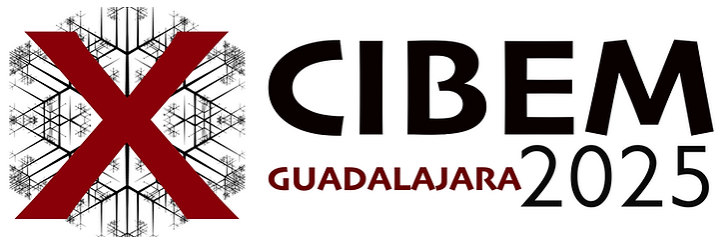
A new edition of the Ibero-American Congress on Mathematics Education (CIBEM) will take place in Guadalajara (Mexico) from July 7-11, 2025.
The X CIBEM is convened by the Federación Iberoamericana de Sociedades de Educación Matemática (FISEM) (www.fisem.org), organized by the Asociación Nacional de Profesores de Matemáticas de México and will be held at the Centro Universitario de Ciencias Exactas e Ingeniería (CUCEI).
The registration period is now open, as well as the deadline for submitting papers for evaluation by the scientific committee of this congress, which is one of the most traditional international events in the field of Mathematics Education. It is a meeting that brings together, every four years, around 1,500 researchers, professors and postgraduate students and teachers of basic and higher education, from several Portuguese and Spanish-speaking countries in Latin America and Europe.
In this congress, teachers and researchers strengthen the links between the Portuguese, Spanish and Latin American Mathematics Education communities, promoting this event in different countries and having Spanish and Portuguese as official languages. Participants may submit papers for the following thematic clusters:
- Teaching and learning mathematics in the different educational modalities and levels.
- Problem solving in mathematics.
- Socio-cultural aspects of mathematics education.
- Teacher training in mathematics.
- Resources for teaching and learning mathematics.
- Mathematics and its integration with other areas.
- Research in mathematics education.
- Social history of mathematics education in Latin America.
- Mathematics communication and dissemination.
In its different modalities: short communications, posters, courses, workshops, mathematical fair or discussion groups, for the different educational levels from initial education to adult education.
In addition, the program will be completed with plenary lectures and various parallel conferences on content related to the thematic nuclei of the congress.
The CIBEM is a congress affiliated to ICMI.
9.2 ADiMA-4
The University Mohammed VI Polytechnic (UM6P) hosted the 4th edition of the Association of African Mathematics Didacticians (ADiMA-4)
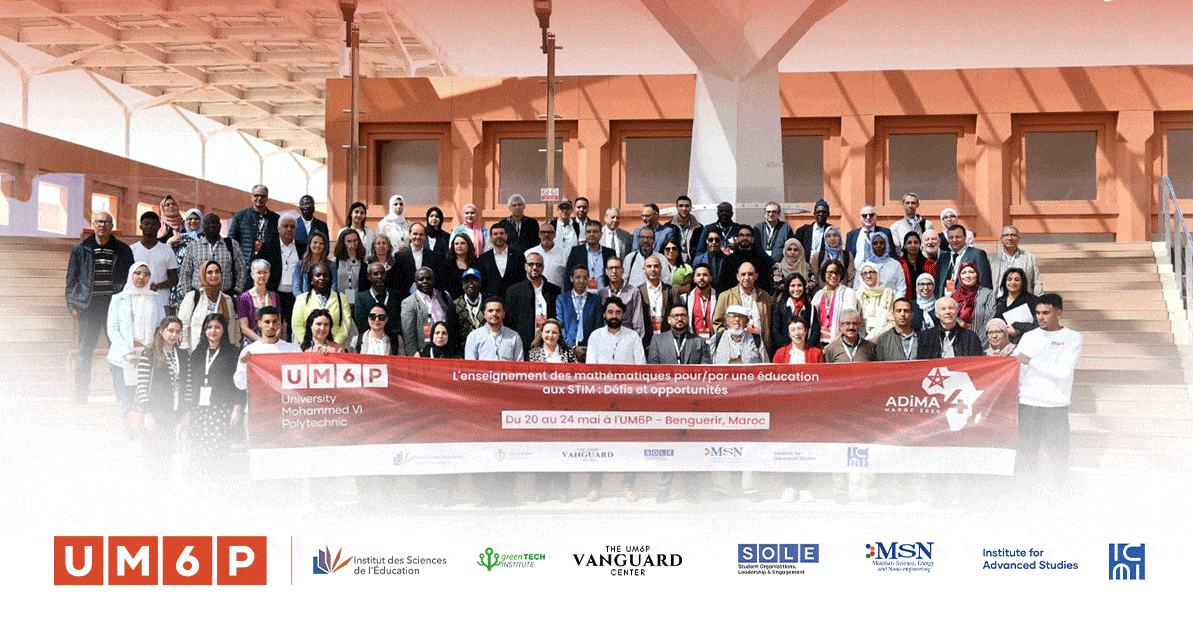
From May 20-24, the Institute of Educational Sciences (ISE) at UM6P, in partnership with various collaborators, hosted the 4th edition of the Association of African Mathematics Didacticians (ADiMA). ADIMA is an ICMI Affiliate Regional Organization.
This conference brought together around 60 researchers, trainers, and educators from 10 different countries1 to discuss research and development works related to various issues in mathematics education, with a particular focus on the conference theme: “Teaching mathematics for/by STEM education: challenges and opportunities.”
The gathering played a crucial role in strengthening the existing network in the region and served to promote innovative pedagogical approaches, engage in dynamic discussions, share groundbreaking research, and collaborate on developing new educational practices.
130 from Morocco, 1 from Benin, 1 from Cameroon, 9 from Canada, 4 from France, 1 from Ivory Coast, 1 from Djibouti, 1 from the Netherlands, 1 from Senegal, 5 from Tunisia, 2 from the USA
9.3 News from South Africa and AMESA
Dr VG Govender (South Africa Country Representative)
The Association for Mathematics Education of South Africa (AMESA) website was formed in June 1993. South Africa consists of 9 provinces. Each province is called an AMESA region. In this report we focus on some of our regional activities which took place in April – May, 2024.
1. AMESA Regional Conferences
Region: Free State
Date: April 6, 2024:
Venue: Sentinel Primary School (in Qwa-Qwa)
Attendance: 610
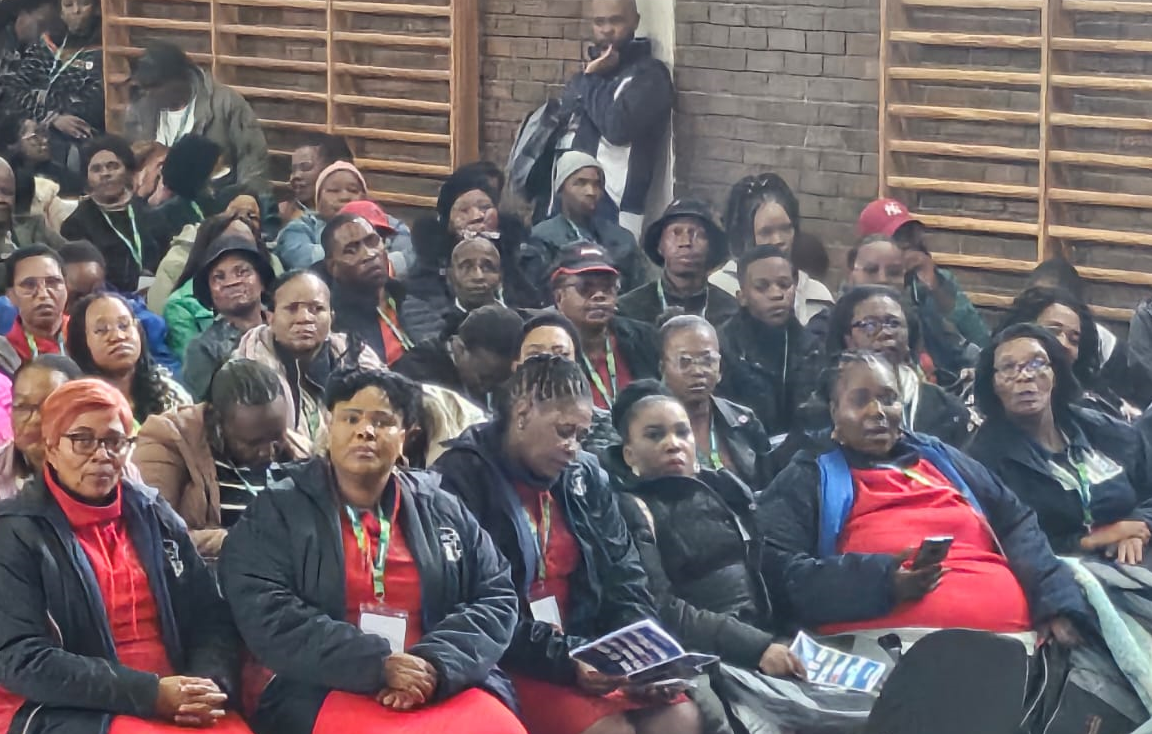
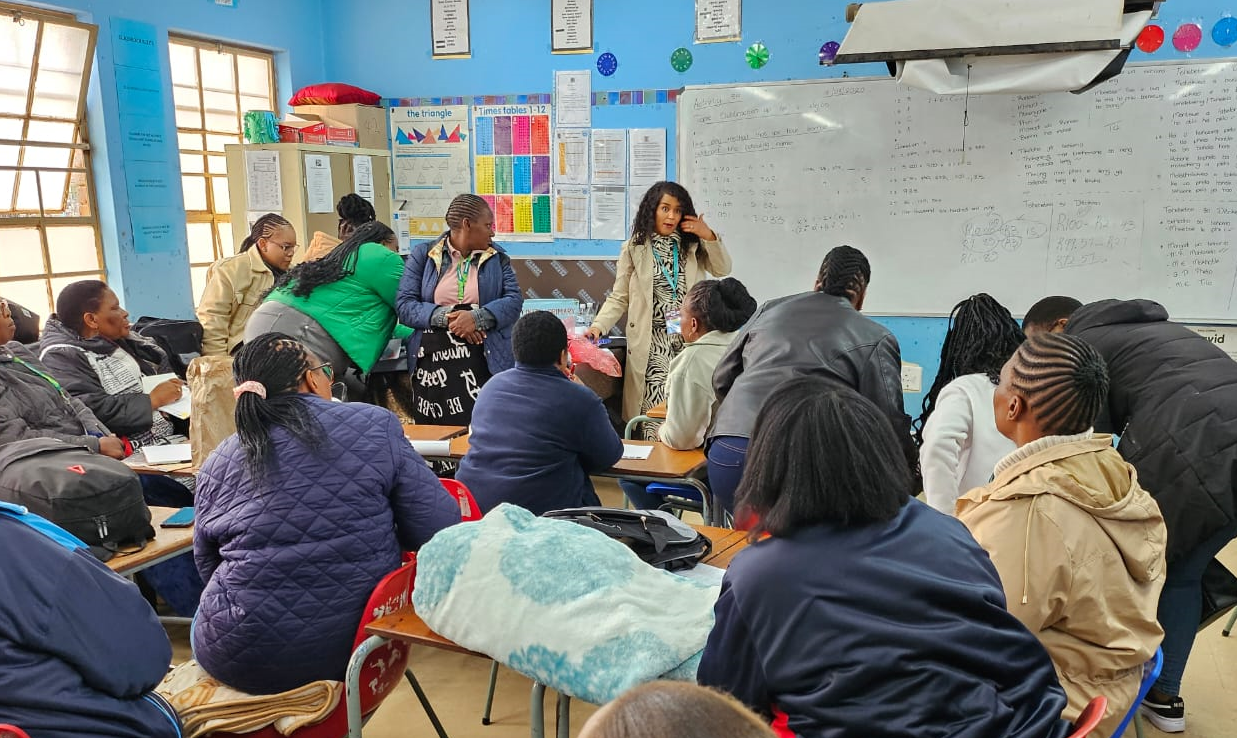
Region: North West
Date: April 20, 2024:
Venue: North-West University
Attendance: 326
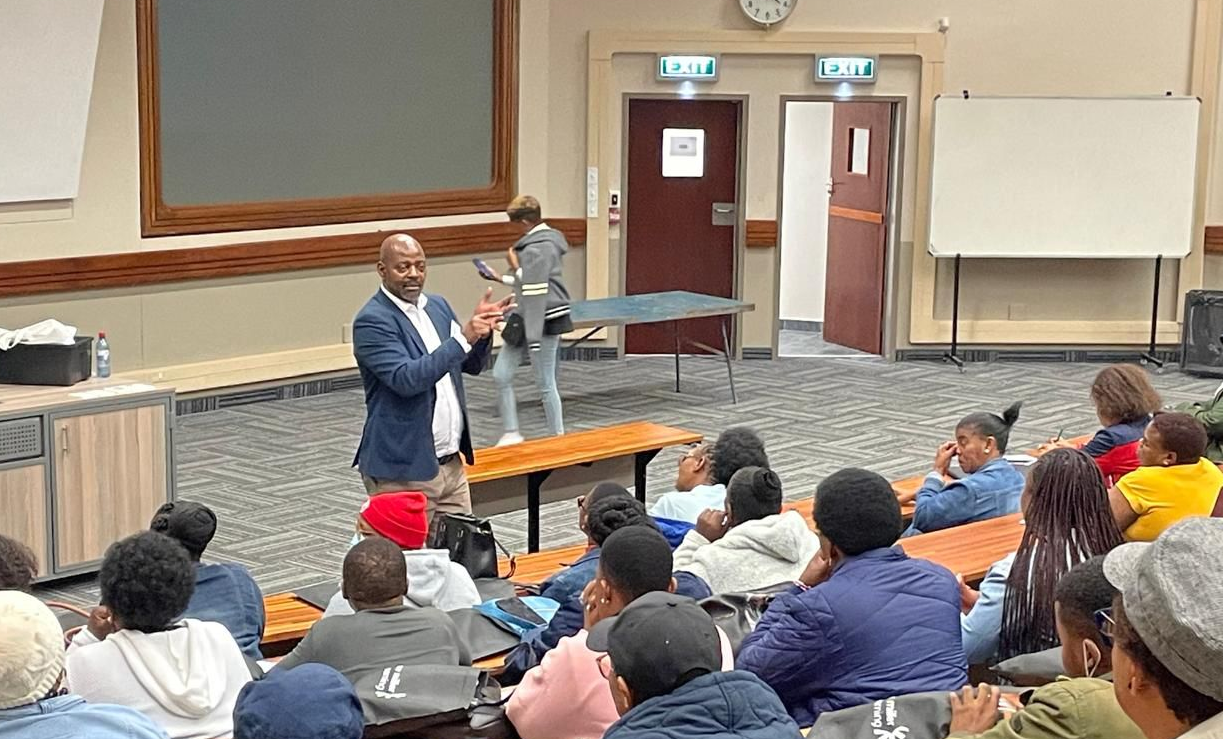
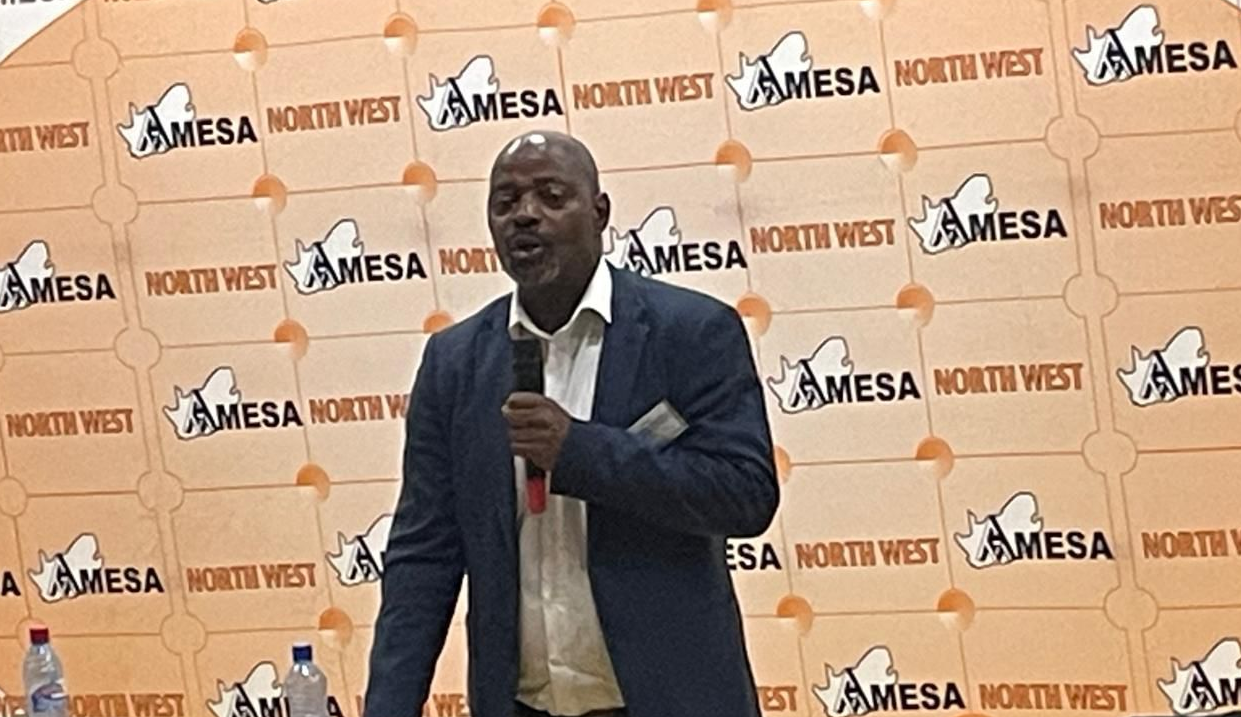
Region: KwaZulu- Natal
Date: May 11, 2024:
Venue: University of KwaZulu Natal: Edgewood Campus
Attendance: 220
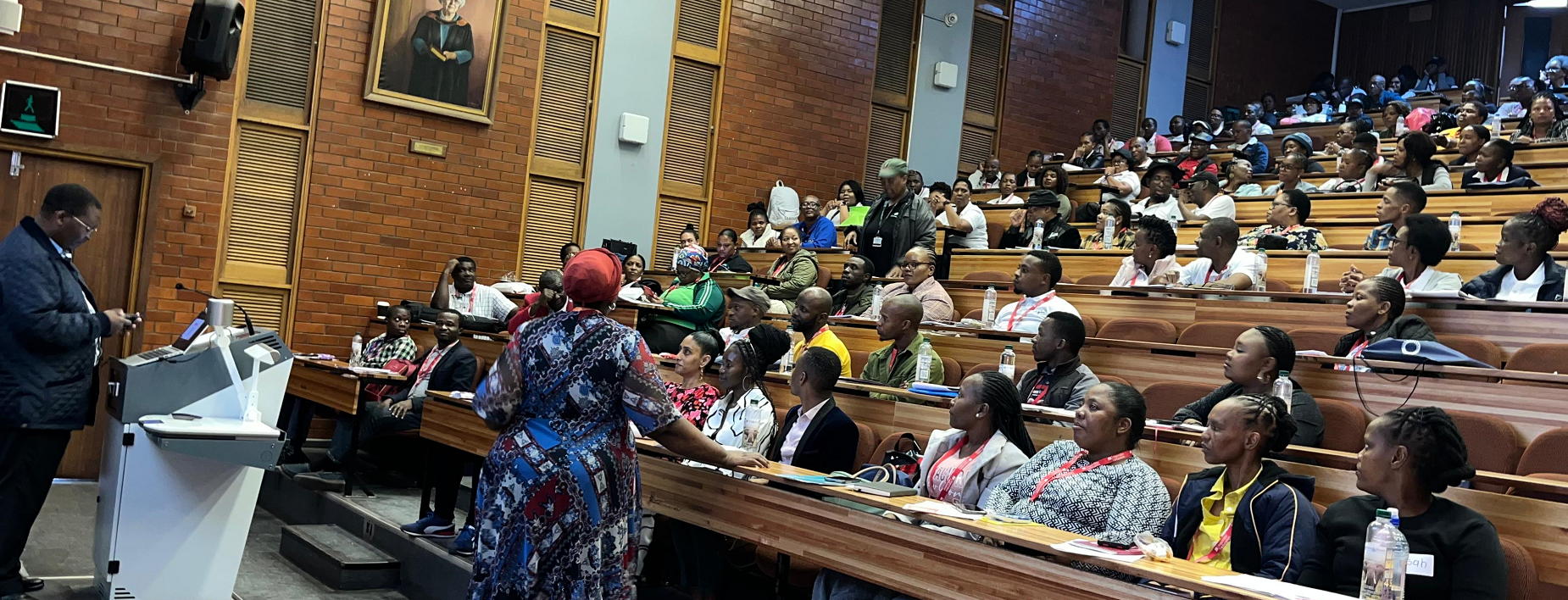
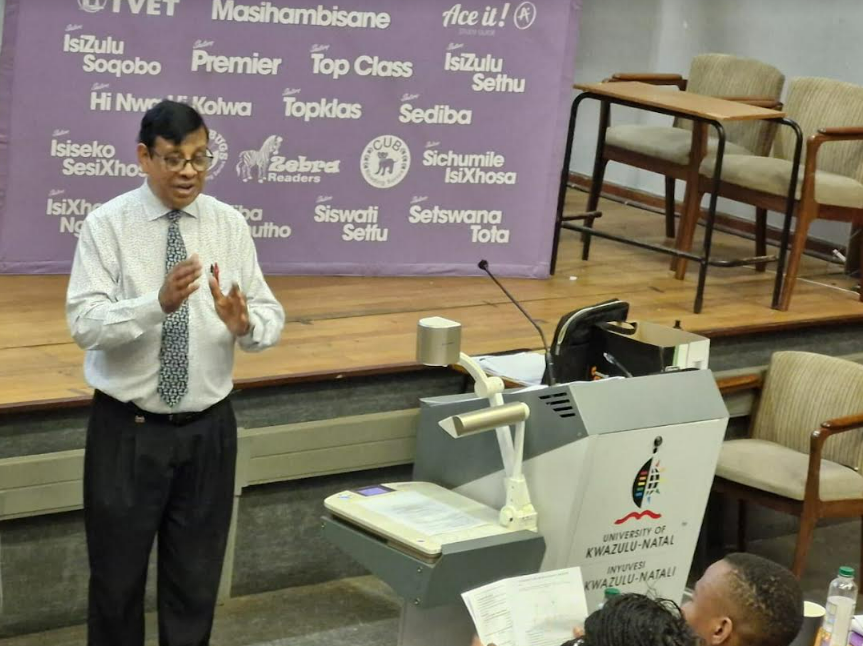
Region: Mpumalanga
Date: May 25, 2024
Venue: Oaks Comprehensive School (Bohlabela District)
Attendance: 204
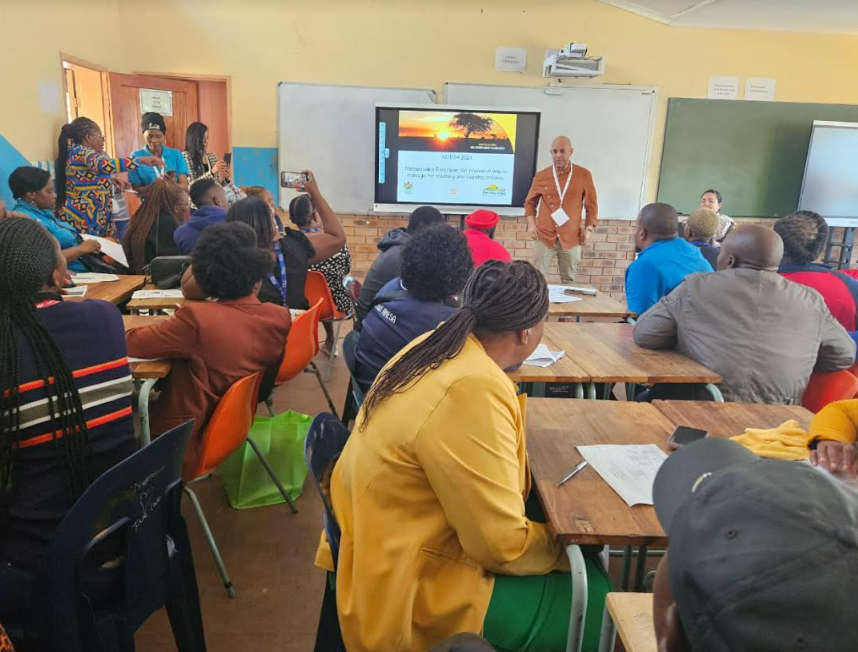
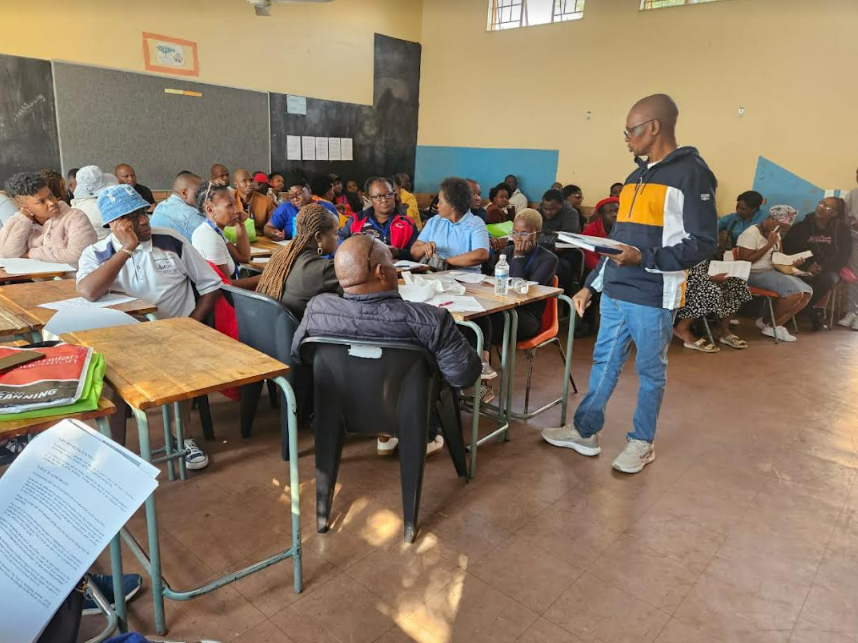
2. Other Regional Activities: Mathematics Workshop for Intermediate Phase Teachers (Grade 4 - 6)
Region: Gauteng
Venue: Buccleuch Primary School
Date: May 18, 2024
Attendance: 56
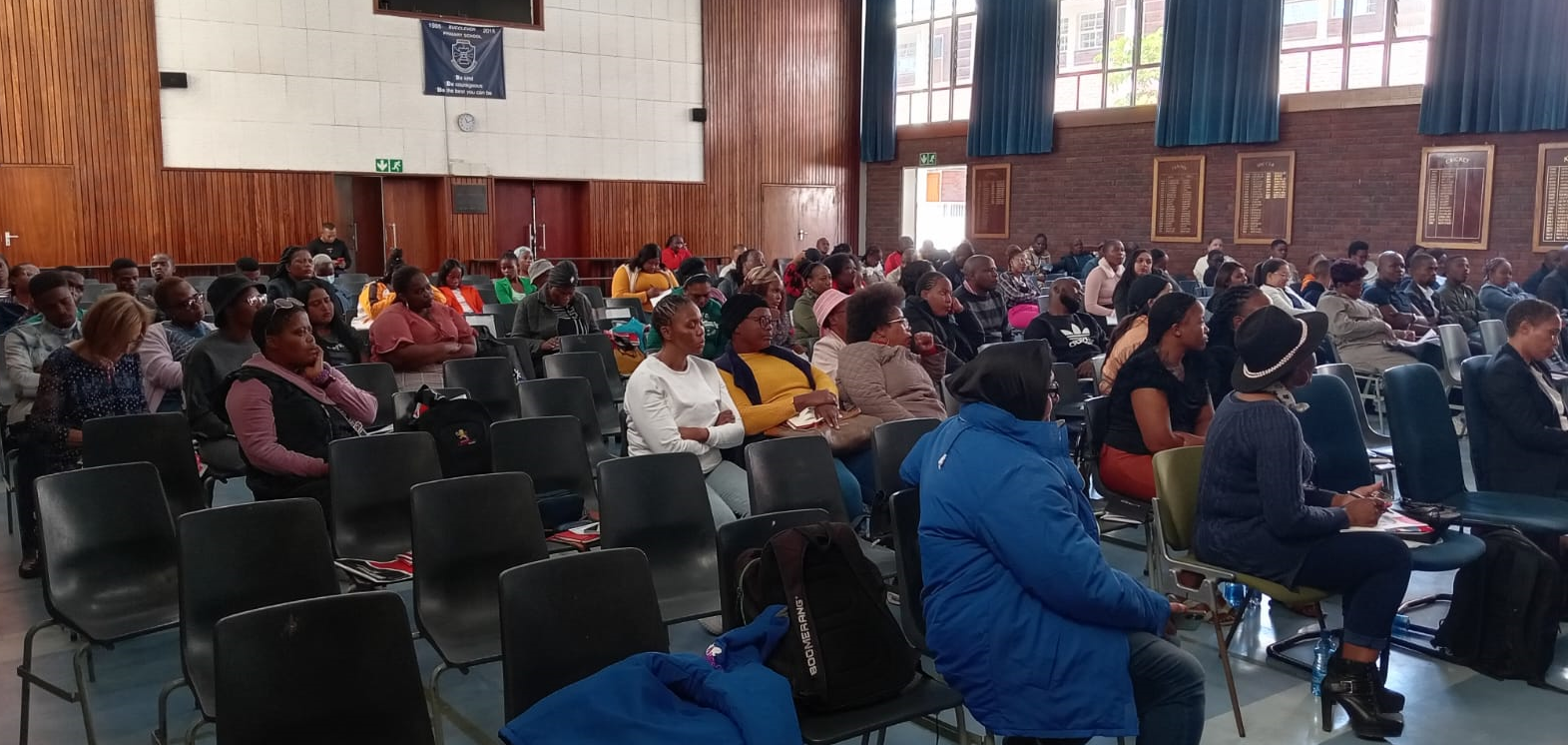
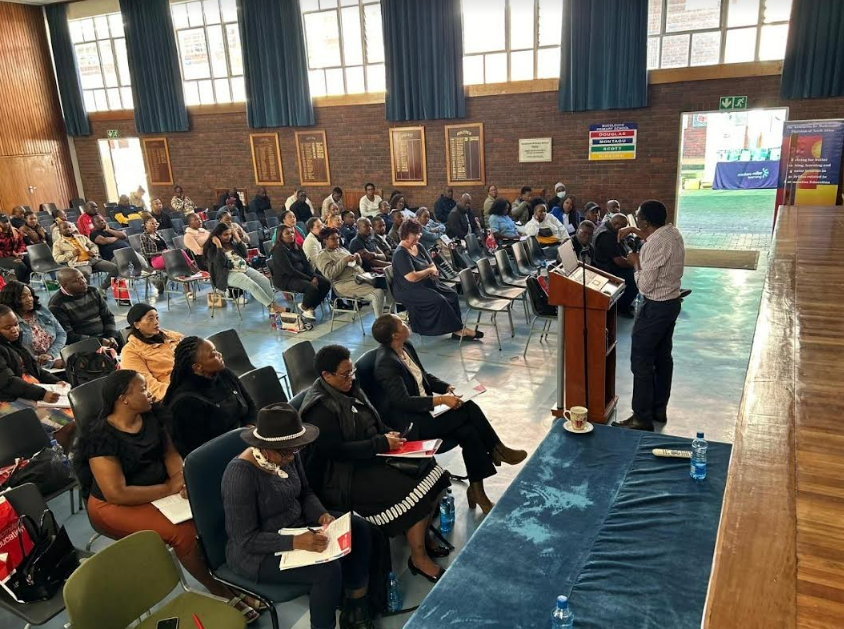
9.4 First National Mathematics Week 2024 in Chile
Awakening interest and enjoyment of mathematics in action
Soledad Estrella, President of SOCHIEM
Mario Ponce, President of SOMACHI
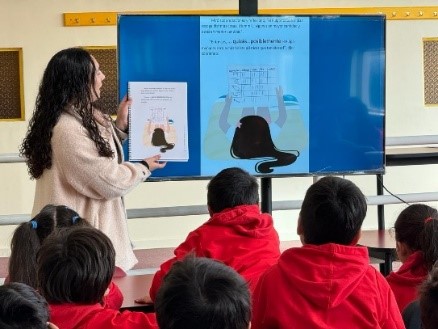
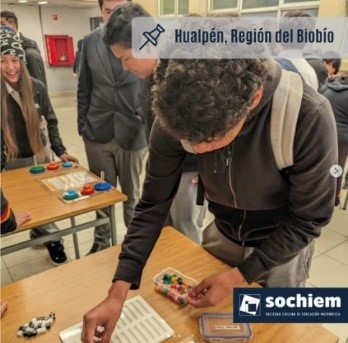
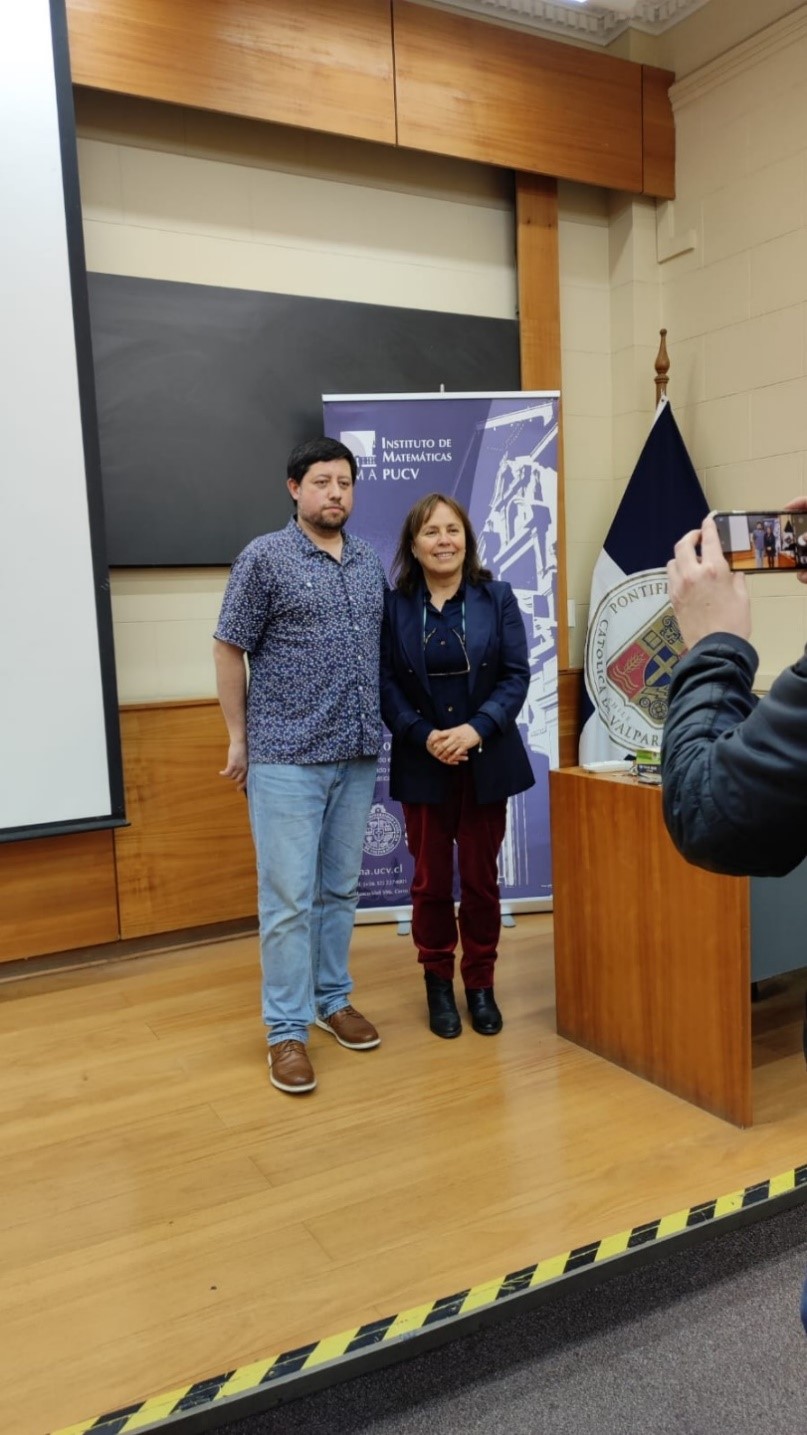
As part of the First National Mathematics Week 2024, the Chilean Ministry of Education invited all educational communities in the country to participate in activities, competitions and a series of webinars, held from April 8-13, which culminated in a "National Summit for Mathematics Learning: teaching in equality". The aim of this National Mathematics Week was to awaken interest, appreciation, study and enjoyment of mathematics, and to encourage playful activities linking learning and play for students. The event benefited from the support and commitment of the scientific societies associated with the discipline, Sociedad de Matemática de Chile, SOMACHI, and the Sociedad Chilena de Educación Matemática, SOCHIEM.
SOCHIEM supported, organized and disseminated various activities in kindergartens, schools, high schools and universities from north to south. SOCHIEM's partner universities and members promoted the presentation of plays on mathematics, storytelling, mathematics rallies, visits to universities, conferences, practical workshops, mathematical games, art and photography competitions, among many others. Individual, group and community outreach activities were promoted in order to foster school mathematics and the development of mathematical and critical thinking skills, both inside and outside the classroom. The aim is to show mathematics as a vital tool in everyday life, which allows us to solve problems, make informed decisions, reduce risks, and understand the world. More information and a record of the actions carried out on the SOCHIEM website.
SOMACHI organized a series of talks and workshops in educational communities around the country, led by researchers in the discipline. SOMACHI has a series of interactive kits, which represent a massive, transversal and entertaining way of bringing a sample of the traditional Mathematics Festival to schools across the country; see the website. These kits, continuously available throughout the year, were intensively activated during this National Mathematics Week. This allowed organizing activities in many corners of the country and disseminating the existence of these learning resources, always accessible to the communities. Long live National Mathematics Week in Chile and may it continue to inspire future generations for the well-being of all!
9.5 News from CIEAEM
by Cristina Sabena, President of CIEAEM
The International Commission for the Study and Improvement of Mathematics Teaching (CIEAEM ) 75 Conference was held from April 22-24 as a Restricted Meeting in Torino, Italy. Approximately 35 participants, including CIEAEM members and invited researchers, gathered to collectively reflect on the theme of 'New frontiers in Mathematics Education', as proposed by the IPC chaired by Cristina Sabena and composed of Audrey Cooke, Andreas Moutsios-Rentzos, Javier Diez-Palomar, Maria Alexandra Oliveira Gomes, and Lambrecht Spijkerboer. The conference was opened by a plenary talk by Ferdinando Arzarello, Professor Emeritus of the University of Torino, on "Digital and non-digital tools in the mathematics class: looking back for thinking forward". The participants' presentations in seminars and workshops contributed to three main themes:
- Classroom practices to foster critical thinking and citizenship.
The discussions addressed multiple questions about critical thinking in mathematics education. From a cognitive perspective, they explored how to measure and influence critical thinking. The sociocultural angle considered critical engagement in mathematics, emphasizing critical argumentation. The importance of critical thinking was tied to real-life problem-solving and decision-making skills, i.e. in the start of a lesson. The discussions also stressed the importance of fostering responsible relationships in mathematics and creating a collaborative and inclusive classroom environment. Ethical reflections in critical thinking and the design of tasks, such as smart starters and collaborative work practices, were deemed crucial.
- Interdisciplinarity and its role in mathematics education.
The group interrogated ideas around what is the role of mathematics in STEAM activities and what are the advantages and challenges of using an interdisciplinary approach to mathematics education activities. The discussion ranged from revisiting the classical word problems in real contexts to including mathematics in poetry composition and to informal mathematics education. The role of teachers and the work with teachers were key-factors in the discussion.
- Emerging technologically extended learning environments.
The discussion focused on emerging technologically extended mathematics learning environments (ETEMLEs). The characteristics of ETEMLEs were examined, as well as their impact on educational units, epistemology, and ontology of mathematics. The need to reconsider the core aspects of mathematics and its education was emphasized. The role of institutional discourse, including curriculum and textbooks, in an ETEMLE, was scrutinized, highlighting tensions between institutional and academic discourse. The role of teachers in an ETEMLE and the potential of AI as a supporting resource, rather than as a teacher, was considered.
The discussions underscored the need for interdisciplinary approaches and addressed broader issues such as ethics, critical thinking, and societal links. Several CIEAEM members look forward to participating in ICME-15 in Sydney. During the conference, there will be a special session dedicated to presenting CIEAEM and discussing its activities over the past four years: don't miss it!
9.6 News from the International Group for Mathematical Creativity and Giftedness
Viktor Freiman, MCG President, Matthias Brandl, MCG President-elect,
Elisabet Mellroth, local co-chair of the 14th MCG International Conference
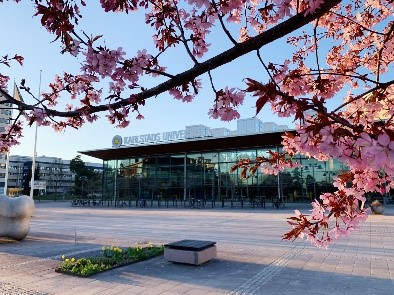
Over the past year (June 2023 – May 2024), the International Group for Mathematical Creativity and Giftedness (MCG) has conducted virtual elections for the first time, electing President-elect (Matthias Brandl, Germany) and five IC members. Two were new members (Alexander Karp and Christine Weiss, both from the USA), while three existing IC members Andreas Ulovec (Austria), Attila Szabo (Sweden), and Elisabet Mellroth (Sweden) were re-elected for another term.
We also had a successful 13th International Conference from February 20-23, 2024, in South Africa organized by Gerhard Beukes (South Africa, LOC chair) and Linda Sheffield (USA, IP chair).
We are very happy to announce that submission and registration is open to the Combined ECHA and MCG conference, June 16-18, 2025. For registration and submission, go to the conference website. We warmly welcome you to Karlstad, Sweden, during our best season of the year when it is bright all through the nights. The conference is a merged conference between two organizations that are very important for our highly able children and students: European Council for High Ability (ECHA) and The International Group for Mathematical Creativity and Giftedness (MCG). We are convinced that members of these two organizations will find many interesting topics to talk and share knowledge on: we are happy that for the first time bring these two groups together.
There are two main themes for the conference, inclusion and sustainability. Both themes have a double meaning that will guide submitted proposals and have influence on the whole conference. Proposals could approach the themes either on how to apply gifted education within inclusive settings and systems and/or on how to create sustainable solutions and futures for gifted education: sustainable for children and students; for teachers and school systems; and for research on gifted education. The double meaning of sustainability will be visible through several environmental choices in conference implementation. The venue itself is located close to the city center which means that most accommodation is within walking distance of the venue. The conference will be jointly led by Valerie Margrain, chair of the ECHA part and Elisabet Mellroth, chair of the MCG part. Conference attendees might like to stay in Sweden a little longer and experience the midsummer solstice and Midsummer festival on June 20, or other activities in the land of the midnight sun (Visit varmland website).
Other than conference preparation, if you take part in ICME-15 in July, you are cordially invited to the TSGs on mathematical promise, giftedness, and creativity closely connected to our Group's goals. Also, consider attending an MCG session as part of ICMI Affiliate Organizations meetings and bring your colleagues who might be interested in learning about our Group and eventually joining us. All details are at ICME-15: Come and be counted! - ICME-15 (icme15.org)
Finally, consider contributing to our next issue of the Newsletter and writing for our Blog. Our website is constantly being updated, visit it for more information at igmcg.org. Everyone is welcome to join the Group and becoming our member.
9.7. IV CEMACYC, Dominican Republic 2025
By Angel Ruiz, President, International Council Mathematics Education Network of Central America and the Caribbean

Between November 2 and 7, 2025, the IV Congress of Mathematics Education of Central America and the Caribbean (IV CEMACYC) will be held (in-person). It is organized by the Mathematics Education Network of Central America and the Caribbean (ICMI’s CANP-2 regional network for countries of the Caribbean Basin). Researchers, Mathematics Education students, education policymakers and specially teachers from all the Americas, Spain, and Portugal are invited.
Official languages: Spanish and Portuguese.
CEMACYC returns to the Dominican Republic after 12 years. The I CEMACYC was last held in this country in 2013. The venue of the event is the Pontificia Universidad Católica Madre y Maestra, Santo Domingo.
Submissions will be received from November 2024 to February 2025.
10. Conferences to come
10.1 PME 47

Annual Conference of the International Group for the Psychology of Mathematics Education
Dates: July 17-21, 2024
Location: Auckland, New Zealand
Theme of the conference is “Rethinking mathematics education together.”
More information on the website.
10.2 "The Eighth International Conference on the History of Mathematics Education" (ICHME-8), September 16-20, 2024
We are pleased to invite you to participate in the Eighth International Conference on the History of Mathematics Education, which will be held in-person at L.&A. Birkenmajer Institute for the History of Science of the Polish Academy of Sciences in Warsaw (Poland).
The thematic scope of ICHME-8 includes, among others:
- Methodology of research in the history of mathematics education
- Transmission and reception of new educational ideas in mathematics education
- The history of mathematics education and the history of mathematics: connections and mutual influences
- Actors and contributors in mathematics education
- Development of mathematics education in specific countries
- Development and changes in mathematical content within a curriculum and in the form of its presentation
- Mathematics education of groups historically underserved in education
- Mathematics teacher education
- Mathematics textbooks and other educational resources
- Reforms in mathematics education
There will be three forms of active participation in the conference: long presentations (40 min.), short presentations (20 min.) and posters. The review process will determine in which activity a given submission will be presented. The deadline for abstract submissions was February 15, 2024.
IMPORTANT DATES
Abstract Submission Closed
Early Bird Registration Closed
Standard Registration May 16 – July 31, 2024
Conference Dates: September 16-20, 2024
Final Paper Submission by December 31, 2024
Proceedings Publication (peer-reviewed): Third quarter 2025
Registration should be completed before July 31, 2024 via the ICHME-8 website. The conference fee will be announced later.